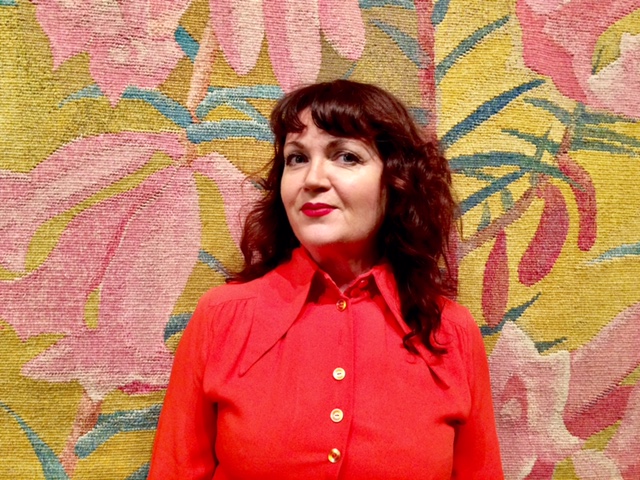Courtney Gibson.
Courtney Gibson has had a busy first day at the helm of the South Australian Film Corporation (SAFC), introducing a suite of new initiatives designed to see the state score a larger share of Australia’s screen production market and improve diversity.
This includes the simplification of SAFC’s development funding streams into two general streams: the Early Development Fund, designed to support projects at their most nascent stage, and the Advanced Development Fund, which will support those that are market-ready or market-attached. The Aboriginal Project Development Grant is unaffected by these changes.
The new CEO said: “These two funds will allow the SAFC to take a proactive role in supporting young and emerging South Australian talent, along with our more experienced practitioners, so we can identify and nurture the strongest possible projects and ultimately deliver the greatest number of opportunities and jobs into the state.”
Among the other new programs announced was ‘SA in LA’, which will offer SA key creatives a dedicated space at Australians in Film’s ‘Charlie’s’ in Raleigh Studios, Hollywood. Any South Australian-based screen creative visiting LA for the purpose of professional development or on business can apply for access from next Monday.
Gibson said this would be a place for SA-based practitioners to work, network and hold meetings, and would be available for a few days to a few weeks.
‘Delivering Diversity’ is another new initiative for the agency, an umbrella under which it will deliver programs for under-represented voices in the screen industry, including women, Aboriginal content makers, people from culturally and linguistically diverse backgrounds, regional South Australians, practitioners with disabilities and those from the LGBTQI community.
“The only way to deliver diversity is to just get on with it – providing resources, time, jobs and funding to enable a multiplicity of practitioners to create screen content and make their authorial voices heard, especially in key creative roles, but also right across the whole collaborative screen production process,” said Gibson.
“At the SAFC we commit to advocate to, and on behalf of, industry in relation to diversity and we commit to taking a focused, resourced and long-game approach to shifting the existing power-dynamics in the screen business, in order to improve access and opportunities for all, and thereby lever the very best output from our sector.”
As part of this initiative, SAFC – in partnership with Adelaide Film Festival – will invite a local distributor to the state co-host a quarterly networking event, where they can meet emerging practitioners from under-represented groups to discuss their developing projects.
The first by-invitation event will be co-hosted by Madman Entertainment CEO Paul Wiegard and members of his senior acquisitions team at Adelaide Studios on Wednesday April 18.
The SAFC’s current Gender Agenda program and the Aboriginal Screen Strategy 2015-2020 will also sit within the Delivering Diversity program.
SAFC introduced Gender Agenda program in October 2016, which has seen female participation in key creative roles across SAFC funded drama production rise from 38 per cent to 50 per cent for producers, 15 per cent to 26 per cent for directors, while writers have remained static at 28 per cent.
Gibson said advocating for parity in directors and writers will be a key focus going for SAFC going forward.
Gender and diversity were key focuses for the executive while she was at Screen NSW, where she introduced a gender equity initiative and Screenability, an internship program to create opportunities in the screen industry for people with disabilities. While at the state body the executive also increased levels of production in the state, attracted numerous international film and TV projects and a VR/AR development program.
SAFC’s new initiatives are designed to complement its introduction of an uncapped 10 per cent PDV rebate and move to a 100 per cent grant production model, both of which were announced in recent months.



